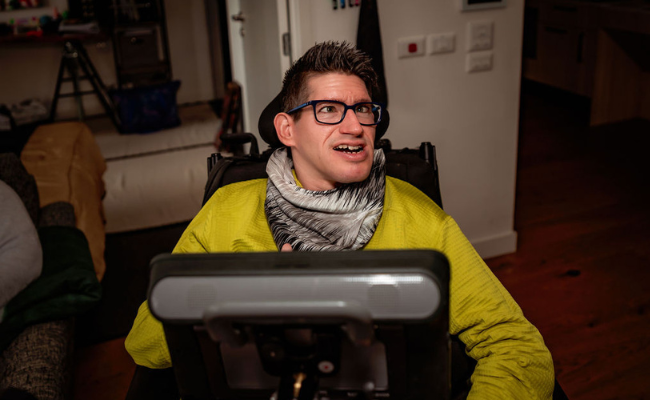What difference can the right home make to achieving your goals?
Mel explains how living in the right home can help you achieve your goals.
In my experience, the right home can be the basis of achieving goals.
Since being in my own home, I've learnt so many new skills. I’ve learnt to bake and cook, and have a different headspace now for entertaining the thought of what is possible.
The proper accessible home can lessen the impact of disability and increase autonomy. But independence does not have to mean doing things completely on your own.
Independence can be about having access to technology to open your front door, or being able to manage your own support crew, or being able to choose who comes into your home so that you can live the life that you choose for yourself.
In the disability world, having an accessible home once meant having a roof over your head that could practically accommodate your physical needs, but now many would agree that an accessible home means being able to be close to things that you enjoy, feeling confident and comfortable in your surroundings, and being connected to your community. These things enable me to be able to spend more time alone, to enjoy my independence, and to feel like a valued contributing member of society.
As the need for accessible housing becomes better understood in the community, I also believe that it will become less ‘amazing’ to the general public that someone with a disability lives alone with support.
It will become more run of the mill that we, as people with disability, also have work, fitness, and relationship goals that we want to achieve just like anyone else.
The right home and support structure for people with disability is an integral part of the mosaic that enables us all as humans to work toward achieving our goals.
Article published: May 2021
About the Author
Mel has had Cerebral Palsy since birth, but never let that stop her. Mel has worked in various disability roles and has done lots of workshop presenting, mentoring and travelling – both professionally and personally.
Mel has always had significant physical support needs, but credits her parents for helping her believe in herself and never limiting what she expected of herself. Melanie works hard not to let her disability define her.
Questions about NDIS Housing?
Call our NDIS Housing Advice line
For NDIS participants, their families, and supporters. Monday – Friday 10.00am – 3.00pm AEST. You can also email us anytime at housingoptions@housinghub.org.au.
Browse Resources

Housing Seeker Profile
Creating a Housing Seeker Profile is a simple process which involves telling us what you are looking for and what is important to you.

Housing Roadmap
The Housing Hub has worked alongside people with disability to map out the stages of a housing journey and the information you need to know about when moving through each step.

Living More Independently
The Housing Hub has teamed up with Mable to create a three-part series about living more independently.

